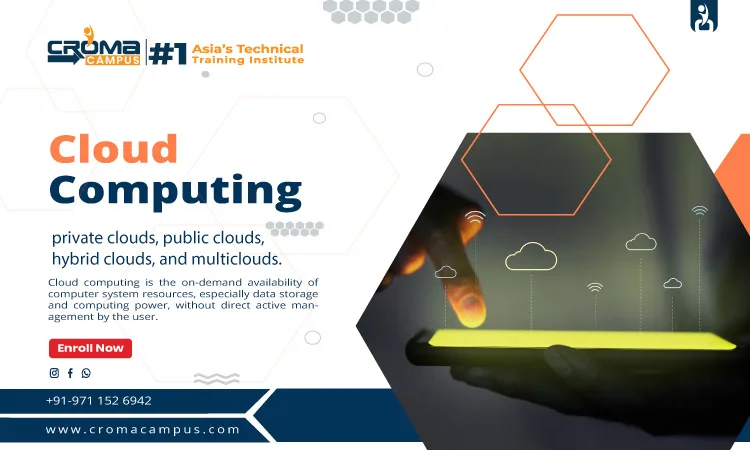Introduction:
Cloud Computing is the most commonly heard term in the present day. However, the principle of the cloud isn’t new, but as more and more companies and businesses are switching to cloud-based services; it has become important to understand the essentials of cloud computing terminology and concepts. To obtain well-versed training in this computing technology, Cloud Computing Training in Noida can be a great medium to build your expertise. Moreover, a strong base will help you proceed in your career with better expertise.
What is the Cloud?
We hear a lot about cloud computing, but what exactly does it mean? Basically, the cloud is the Internet, and cloud computing is the term that describes software and services that run through the Internet rather than on private servers and hard drives.
How does Cloud Computing work?
Cloud Computing differs from traditional IT hosting services, where the consumer generally doesn’t own the infrastructure required to support the programs or applications they use. In place of that, a third party owns and operates those elements and the end-user pays only for the services they use. In simple terms, cloud computing is an on-demand, utility-based model of computing.
Characteristics of Cloud Computing:
On-demand self-service
Users can take advantage of computing services by the cloud when they require to without any kind of interaction from the service provider.
Broad network access
Cloud Computing services are widely available through the network through users’ preferred tools
Resource pooling
One of the best elements of cloud computing is the pooling of resources to provide computing services at scale. Resources, like storage, memory, processing, and network bandwidth, pool together to satisfy the multiple consumers’ demands.
Rapid elasticity
Successful resource allocation requires elasticity. Resources need to be assigned accurately and quickly to absorb significant increases and decreases in demand without service interruption or quality degradation.
Measured service
Following the utility model, you can measure and manage the cost of cloud computing services. This measurement allows the service provider to track usage and mind costs on the basis of their demand for resources.
Cloud Service Models:
IaaS
IaaS provides users access to storage, networking, servers, and other computing resources through the cloud. While the user is still responsible for looking after their applications, data, middleware, etc., IaaS gives automated and scalable environments for a high degree of control and flexibility for the user. Also, many businesses use IaaS to support workload hikes during busy seasons.
PaaS
This service layer mainly proceeds toward developers and operations professionals. Service providers rent out cloud-based platforms for users to construct and deliver applications. In other words, PaaS offers a framework that makes it easier and more efficient to customize, build, and deploy applications.
SaaS
Cloud application services are the most popular type of cloud service model. The software is delivered by a third party through the Internet.
Types of Cloud Computing:
Public
A public cloud is certainly the most commonly in-use cloud computing option. The benefit of using a public cloud is its greater efficiency and subsequent cost-effectiveness from shared resources. However, public clouds are relatively cheaper than private and hybrid cloud solutions.
Private
A private cloud offers IT services through the Internet or a private network to select users, in place of the general public. Certainly, this is also a popular choice for many businesses that want the agility of the cloud with higher customization and security.
Hybrid
A hybrid cloud environment includes both private and public cloud elements to satisfy changing degrees. Moreover, this is an increasingly popular cloud solution as it allows organizations better flexibility to meet their IT needs.
Conclusion:
Good Cloud Computing Training can be an excellent option for building your expertise in this domain. However, there are many benefits to adopting cloud-based solutions for your business. Thus, make adequate use of it to enjoy its maximum benefits.
